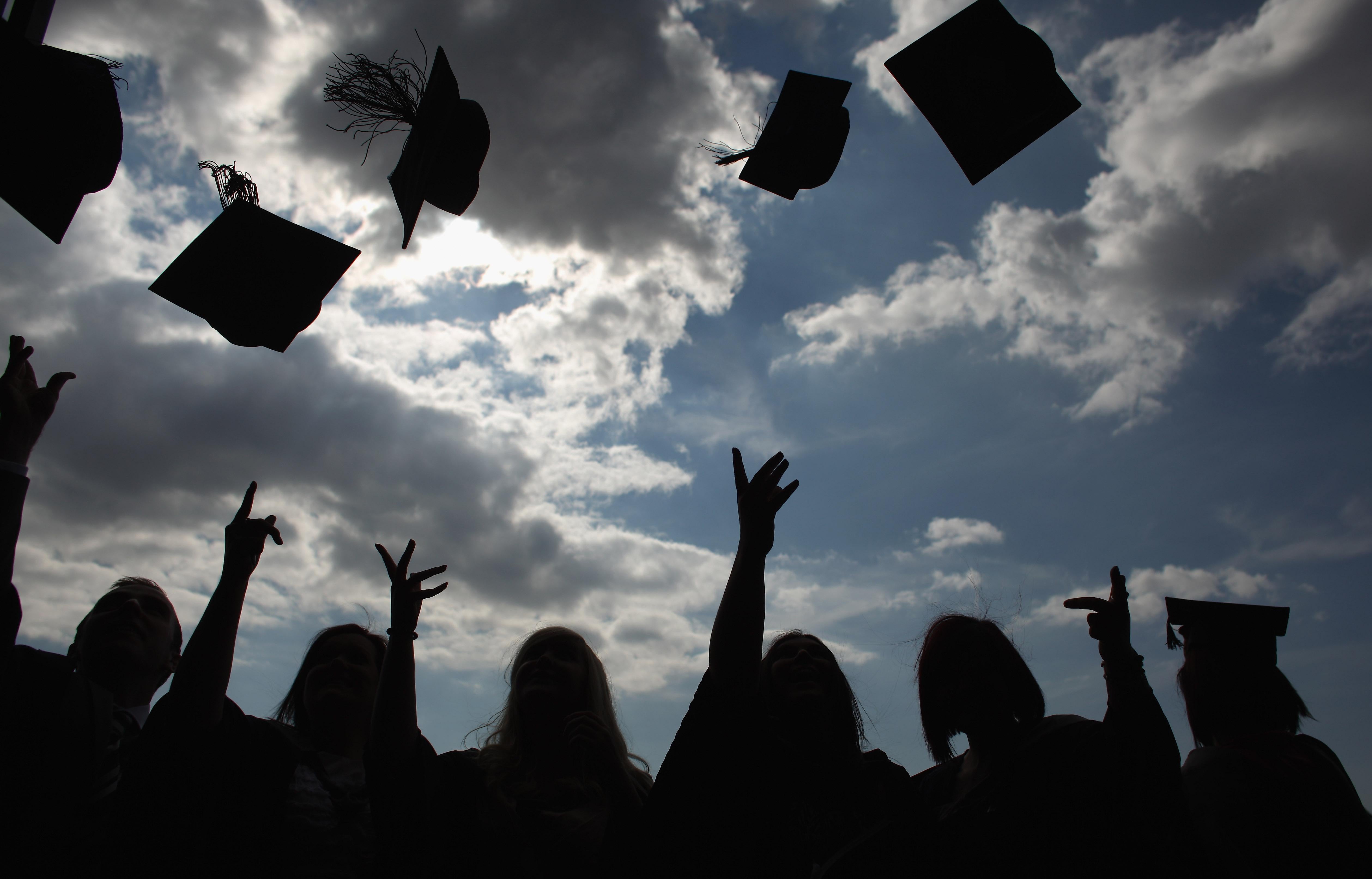When it comes to college, “whether a student graduates or not seems to depend today almost entirely on just one factor — how much money his or her parents make.” So argued Paul Tough in a long New York Times Magazine article earlier this month that highlighted the enormous completion gap between affluent undergraduates and their less privileged classmates. That gulf seems to have little to do with innate academic talent. Early in his piece, Tough cites a killer stat: Among students who scored between 1000 and 1200 on their SAT’s out of 1600, undergrads from families in the top income quartile had roughly a two-in-three chance of finishing their bachelor’s degree. Students from the lowest quartile had about a one-in-six chance.*
Those numbers were drawn from a report by Anthony Carnevale and Jeff Strohl of Georgetown’s Center on Education and the Workforce. Last night, I stumbled on the pair’s original graph. The rich-poor divide is indeed huge. But I was struck by the gap between the top and the middle class as well. Outside of the highest income quartile, students have no more than a 59 percent likelihood of graduating. Mostly, their chances are below 50 percent.
A chart like this should probably accompany every article that rehashes the question of whether college is “worth it.” For the most part, spending money on a bachelor’s degree is a good investment. But then you have to earn the degree. For students who don’t, the rewards are slimmer, and their chances of defaulting on their student loans are far higher. And for all but the wealthiest quarter of students, completion isn’t anywhere close to a guarantee. In college, class really does matter.
*The one-in-six figure Tough cites seems to mash up low-income students from two different SAT ranges.
